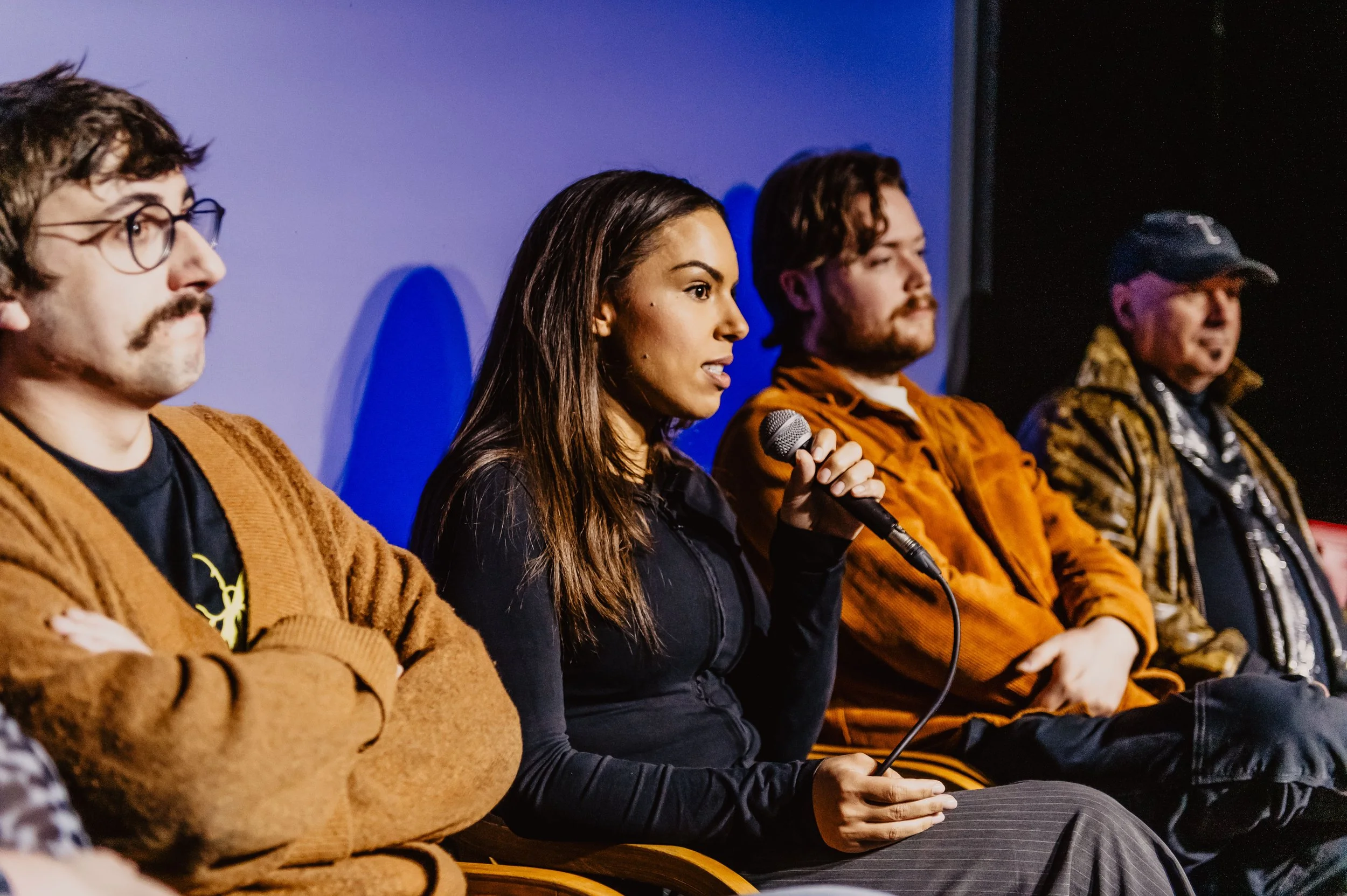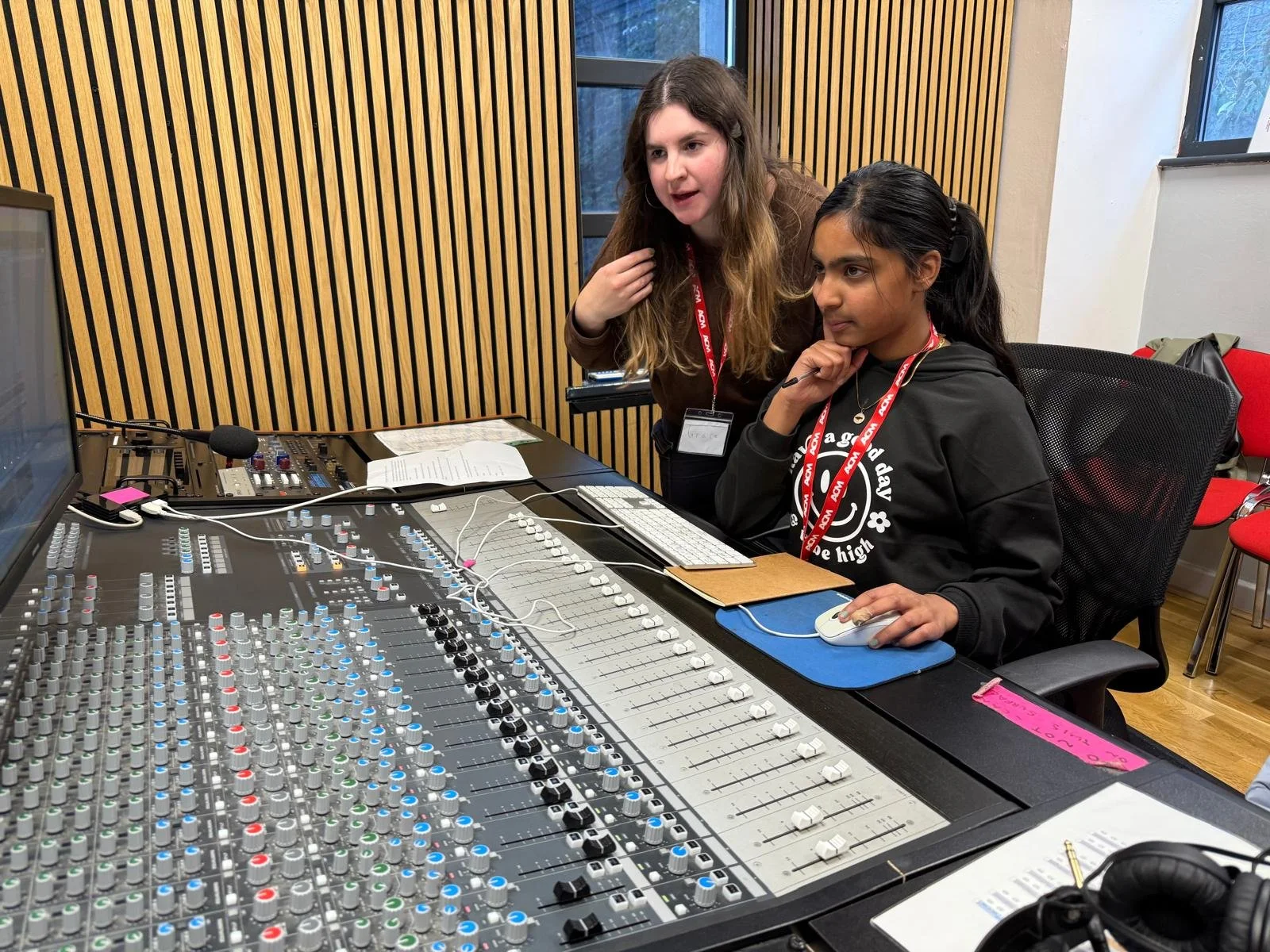Equalize - Bridging the Gap in Music Education
I don't remember when I realised music was my passion, it just always was. And I realise now that the access I had to it, considering I come from a working-class background, was a huge privilege.
My community high school specialised in music and performing arts. I left there to study music and arts management at a nearby college. I then attended a specialist music college (all state-funded and for free, might I add) and later continued on to university.
With a childhood that led me into a career in music and the arts, I often find myself asking: What worked for me? What do I wish I’d known? What opportunities made a difference?
Music, art, and technology have advanced so much since the 1990s that asking myself those questions usually helps me find a positive way forward for the emerging artists I now work with. But when I reflect on my own experiences with music and education in school, I realise the harsh reality is that children today actually have not more, but fewer opportunities to learn and pursue music.
This is why I'm extremely excited to be involved in Equalize - let me explain…
The positives of music education
As someone who works in the Creative Sector, I can clearly see how positive, powerful, and far-reaching a music education can be; its benefits stretch across industries. Music and the arts fuel creativity, authenticity, and innovation; they encourage people to think outside the box, take risks, and imagine new possibilities. They shape culture, stir emotion, and create experiences that stay with us.
Music probably made you cry at a wedding, persuaded you to buy something you didn’t need, or maybe even helped you through a tough time emotionally - in some parts of the UK, doctors and health professionals have begun "prescribing" music therapy, for example.
Plato said, “Music gives a soul to the universe, wings to the mind, flight to the imagination, and life to everything.”
Steve Jobs said, “Technology alone is not enough,” referring to art and creativity.”"
And Albert Einstein said, “The greatest scientists are artists as well.”
And yet, it would seem we have a problem…
The state of music education now
In recent years, fewer students are choosing to continue with Music Education at GCSE and further education levels. The numbers tell a clear story.
In 2023, just under 33,000 students took GCSE Music - a drop of 12.5% from the previous year and 36% since 2010. Even more striking is that 42% of state-funded schools did not enter any pupils for GCSE Music at all. At A-Level, entries have also fallen sharply, with around 5,500 students in 2023 - again, a 7% decrease from 2022 and nearly 30% since 2014.
These figures highlight a troubling trend: music is losing ground in secondary education at exactly the stages where students might otherwise deepen their musical learning.
Why are less students studying music?
Whilst researching the reasons behind the decline in music uptake at GCSE and FE level, I came across the EBacc performance measure. Introduced in 2010, it encouraged schools to focus on a narrow set of “core academic” subjects: English, Maths, Sciences, Languages, and History or Geography. Music and the arts were excluded from that list, and as a result, many schools began to deprioritise them to boost accountability scores and performance table outcomes.
In 2023, Ofsted published a report revealing that many secondary schools don’t give music enough time. Students often aren’t adequately prepared for further musical study, and most schools fail to build on the enthusiasm and progress pupils gain at primary level. The same report also noted that many teachers lack confidence in teaching music, particularly when their own musical training is limited. It’s no surprise, then, that arts and music frequently end up at the bottom of the priority list within the current National Curriculum.
And then there's the economy…
After the 2010 General Election, public spending was sharply reduced under the UK government’s austerity programme. Local authority budgets plummeted, and among the first things to go was funding for music and the arts. Add to that the closure of community hubs and youth centres which once provided vital access to music spaces and it’s now increasingly difficult to find consistent, high-quality music provision either inside or outside schools.
These are just a few of the factors that, by 2018, had combined to create what could be described as a “perfect storm.”
In short, schools often don’t have the time or money for music and where they do, it’s rarely engaging or encouraged. The result? A generation missing out on all the creative, cultural, and cognitive benefits that a music education can offer.
So how can we fix it?
Showing my age again here, but back in the ’90s at school we played instruments like the recorder and violin and on the best days, we’d get to hit the infamous “DJ!” button on the electronic MIDI keyboard.
Now, where music education is afforded, there's more variety. I’ve heard of kids in school learning the ukulele, the djembe, and rocking out on guitar and drums, which would have been a huge luxury at my school. Playing instruments that you see on contemporary platforms, that are ingrained in our own cultures and help form our identities.
It makes sense that students tend to prefer instruments that allow them to engage with modern music or emulate role models.
This is why I was extremely excited to work with Young Sounds UK and Westminster University’s Black Research Unit, who have partnered with Punch to deliver the Equalize programme in Birmingham.
Funded by the University of Southampton’s AHRC Hub for Public Engagement with Music Research, Equalize is a programme for young people aged 11–16 that aims to break down barriers to learning and engaging with music by introducing Black and Electronic music to the National Curriculum.
Through a series of holiday camps, the group has given young people a week of free education in music production and contemporary sounds. The kind of music they interact with daily, the sounds that reflect who they are and what they want to be.
Through these camps, the team has gathered insight and is producing materials to help schools support teachers in broadening their approach, exploring new technologies, and better connecting with the cultural backgrounds of their students.
What happened?
The Birmingham holiday camp took place at The Academy of Contemporary Music (ACM) in October and saw 18 young students discover their talent for production, songwriting, and studio performance.
The week was a huge success for all partners involved, but particularly for the students, who walked away with their own original recordings, a fresh perspective on what music education could look like, and ideas for accessing education in the future.
For me, it was hugely rewarding to be involved, and after digging deeper into the issue at hand, I can't wait to see the full impact that Equalize has on the British National Curriculum.
For more information on Equalize, check out our website and Young Sounds UK.


